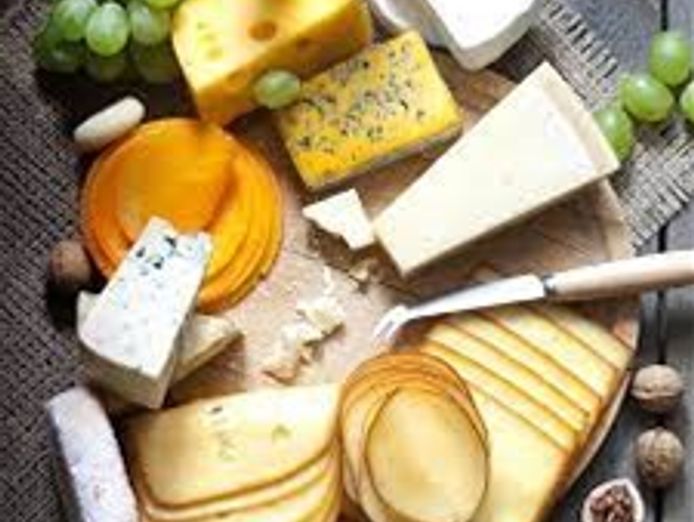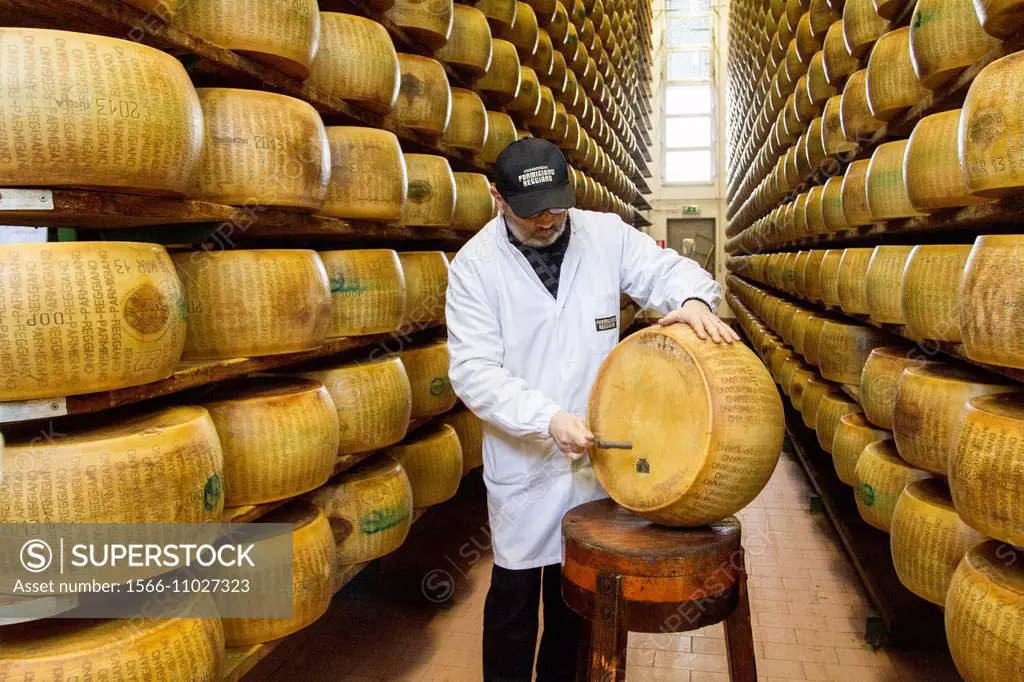A Thorough Take A Look At Cheese Production: Components, Methods, and the Future of Craftsmen Cheeses
The complex process of cheese production is an interesting convergence of art and scientific research, where top notch milk, rennet, and certain bacterial societies act as foundational elements. Typical strategies, such as salting and aging, are complemented by contemporary technologies that react to advancing customer choices. As the industry progressively focuses on sustainability and openness, the future of artisan cheeses promises to show both heritage and progress. Comprehending the nuances of these practices increases compelling questions regarding the direction of cheese production and its ramifications for high quality and authenticity. What exists ahead in this advancing landscape?
Key Components in Cheese Manufacturing
A range of important components play a crucial duty in cheese production, each adding to the last item's flavor, structure, and personality. The main ingredient in cheese is milk, which can come from different sources, including cows, goats, and sheep - cheese makers melbourne. The sort of milk utilized dramatically influences the cheese's preference and uniformity; as an example, cow's milk normally yields creamier cheeses, while goat's milk typically generates appetizing selections
One more essential component is rennet, an enzyme utilized to curdle the milk, separating it into curds and whey. The source of rennet can be animal, veggie, or microbial, each presenting distinctive features to celebrity. Societies, consisting of certain stress of microorganisms, are additionally indispensable to the cheese-making procedure. They ferment lactose right into lactic acid, assisting in flavor development and texture.
Salt not only improves the taste yet additionally acts as a chemical, hindering the development of undesirable germs. In addition, numerous flavor agents, such as natural herbs, seasonings, or perhaps smoked timber, can be contributed to develop special artisanal cheeses. Together, these active ingredients develop the foundation of cheese manufacturing, setting the phase for diverse and rich cheese selections.
Traditional Cheese-Making Techniques
Making use of typical cheese-making techniques, artisans around the globe maintain classic approaches that have been given with generations. These strategies often highlight using high-quality, in your area sourced milk, which is central to the special flavors and textures of artisanal cheeses. The procedure usually begins with the mindful heating of milk, complied with by the enhancement of societies and rennet to facilitate coagulation.
When the curds create, they are reduced, allowing whey to drain, a critical action that influences moisture content and structure. The curds are after that gently mixed and prepared to achieve the wanted firmness. Later, they are drained and pressed into mold and mildews. Salting is a necessary element of this procedure, boosting taste while also acting as a preservative.
Aging, or affinage, is an additional critical part, throughout which cheeses create their particular scents and tastes. Artisans may use details maturing atmospheres, utilizing humidity and temperature level controls to fine-tune the cheese's profile. The dedication to these typical approaches not only supports local economic climates however also contributes to the abundant variety of cheese ranges located globally, celebrating social heritage and artisanal workmanship.
Modern Innovations in Cheese Manufacturing
How have technical innovations changed cheese manufacturing recently? The integration of contemporary technology has changed both the effectiveness and top quality of cheese production. Automation in various stages of the process-- from curd formation to packaging-- has actually improved consistency while minimizing labor costs. For example, automated curd cutting and mixing systems enable accurate control over structure and moisture levels, essential factors influencing the end product.
Additionally, improvements in microbiology have allowed cheesemakers to pick particular microbial cultures and enzymes, enhancing taste profiles and boosting life span. Making use of sensor modern technology for keeping track of fermentation conditions has actually likewise ended up being prevalent, permitting for real-time changes to maintain optimum environments for cheese aging.

These innovations not just improve the top quality and sustainability of cheese production however also empower artisan producers to preserve standard flavors while embracing contemporary performance. As modern technology remains to progress, the future of cheese production looks promising, blending custom with advancement.
The Function of Terroir in Cheese
In the realm of cheese manufacturing, terroir plays a crucial duty in defining the distinct features of different cheeses. Terroir, a French term commonly related to wine, incorporates the environmental variables that affect farming products, consisting of dirt make-up, environment, and regional vegetation and fauna. In cheese-making, the distinct characteristics of the region where the milk is sourced can convey specific flavors and textures to the last product.
For instance, the grazing conditions of dairy animals substantially impact the milk's structure, influenced by the kinds of turfs and natural herbs readily available in a particular area. This differs not only between nations however additionally between areas within the more tips here exact same nation. Furthermore, the microbial areas present in the setting contribute to the fermentation processes, bring about diverse profiles in taste and fragrance.
Cheeses such as look at this web-site Roquefort, Parmigiano-Reggiano, and Cheddar exhibit exactly how terroir can form their identifications, making them unique and frequently protected by geographical indicators. As producers increasingly identify the importance of terroir, there is an expanding focus on sourcing local ingredients and preserving traditional methods, making sure that each cheese absolutely mirrors its origin.

Future Patterns in Craftsmen Cheeses
A remarkable change is happening in the artisan cheese sector, driven by evolving customer preferences and technical advancements. Significantly, consumers are gravitating towards distinct, top quality items that stress both sustainability and local sourcing - cheese shop melbourne. This pattern is triggering artisan cheesemakers to introduce, concentrating on small-batch production and using typical strategies while incorporating modern-day technology to improve high quality and security
Moreover, there is a growing rate of interest in plant-based and alternate milk products, pressing traditional cheesemakers to check out brand-new methods, such as cashew or almond-based cheeses. This shift not just accommodates dietary limitations but additionally aligns with environmental problems concerning pet agriculture.
Furthermore, openness in sourcing and manufacturing procedures is ending up being extremely important. Consumers are much more educated and need traceability, motivating producers to take on clearer labeling methods and participate in storytelling that highlights their approaches and values.
Final Thought
Finally, the complex process of cheese manufacturing melds traditional methods with modern developments, resulting in a diverse selection of tastes and appearances. The focus on top notch components and the influence of terroir highlight the virtuosity associated with cheese production. As the market evolves, a focus on sustainability and openness will likely shape the future of artisan cheeses, dealing with an increasingly discerning customer base that over at this website values authenticity and workmanship in dairy items.